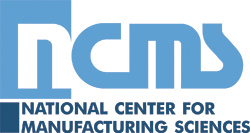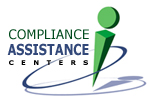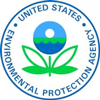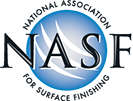| Presented in Partnership with: | |||
 |
 |
 |
 |
1994
United States Environmental Protection Agency
Washington, D.C. 20460
Office of Solid Waste and Emergency Response
February 14, 1994
MEMORANDUM
SUBJECT: Industrial Wipers and Shop Towels under the Hazardous Waste Regulations
FROM: Michael Shapiro, Director Office of Solid Waste
TO: Waste Management Division Directors Regions I-X
We have received numerous questions about the regulatory status of used industrial wipers and shop towels ("wipers") under the Resource Conservation and Recovery Act (RCRA) regulations from the users and launderers of these wipers, and the regulatory agencies responsible for implementing the RCRA regulations. In addition, manufacturers, marketers and users of non-reusable wipers (i.e., wipers that are not laundered, such as paper or other non-textile products) have been requesting clarification on the status of these materials as well. The purpose of this memorandum is to update you on this issue, and to reaffirm our policy regarding the regulatory status of these materials.
Ongoing Efforts
There are currently several activities within EPA that may affect wipers. The Definition of Solid Waste Task Force, as part of their dialogue with industry, environmental groups, State agencies, and EPA Regions, has been evaluating the RCRA regulations affecting launderable and disposable wipers. In addition, OSW has been dealing with the issue of wipers as we continue our efforts with the Hazardous Waste Identification Rule. As you may recall, EPA requested and received comment on alternative approaches for addressing wipers contaminated with listed solvent (May 20, 1992 Federal Register; 57 FR 21474); this proposal was later withdrawn. Finally, the Office of Water will be gathering data to support the development of effluent guidelines for industrial launderers, which handle certain types of reusable wipers.
Status of Used Wipers
Whether or not the used wipers are hazardous waste under the RCRA regulations has been a recurring question. Because there are many applications of wipers, we cannot at this time make any generic statements that all wipers are hazardous waste, or that all are not. A material that is a solid waste is by definition hazardous waste if it either
1) meets one of the listings in 40 CFR Part 261, Subpart D, or
2) exhibits one or more of the characteristics described in 40 CFR Part 261, Subpart C. Because there are no explicit listings for "used wipers" in Part 261, Subpart D, a wiper can only be defined as listed hazardous waste if the wiper either contains listed waste, or is otherwise mixed with hazardous waste. Whether or not a used wiper contains listed hazardous waste, is mixed with listed hazardous waste, only exhibits a characteristic of hazardous waste, or is not a waste at all, is dependent on site-specific factors; this is not a new policy. As a result, any determinations or interpretations regarding this diverse and variable wastestream should be made by the regulatory agency (i.e., EPA Region or State) implementing the RCRA program for a particular State. This has been our long-standing policy.
One of EPAs concerns in determining whether the hazardous waste regulations apply to wipers in specific cases should be to prevent situations where someone is improperly disposing of spent solvents (or other hazardous wastes) by mixing them in with wipers, and then sending the wipers to a laundering facility or non-hazardous landfill. This activity is clearly not allowed under the federal regulations. However, wipers that merely pick up incidental amounts of solvents may be handled in a number of ways. I have enclosed policy documents from several States and one EPA Region regarding the identification and/or management of wipers, that provide examples of how some implementing agencies have developed workable approaches to this issue. If you have additional information, or have questions, please contact Charlotte Mooney or Ross Elliott at (202) 260-8551.
Enclosures (4)
cc: RCRA Enforcement Branch Chiefs, Regions I-X
Regional Counsel, Regions I-X
 |
 |
 |
 |
 |
| Home | Subscribe | Regulations | Compliance Assistance | News | Resources | Resource Locators | Directories | Online Training | About | Search | NASF.org |
The information contained in this site is provided for your review and convenience. It is not intended to provide legal advice with respect to any federal, state, or local regulation.
You should consult with legal counsel and appropriate authorities before interpreting any regulations or undertaking any specific course of action.
Please note that many of the regulatory discussions on STERC refer to federal regulations. In many cases, states or local governments have promulgated relevant rules and standards
that are different and/or more stringent than the federal regulations. Therefore, to assure full compliance, you should investigate and comply with all applicable federal, state and local regulations.